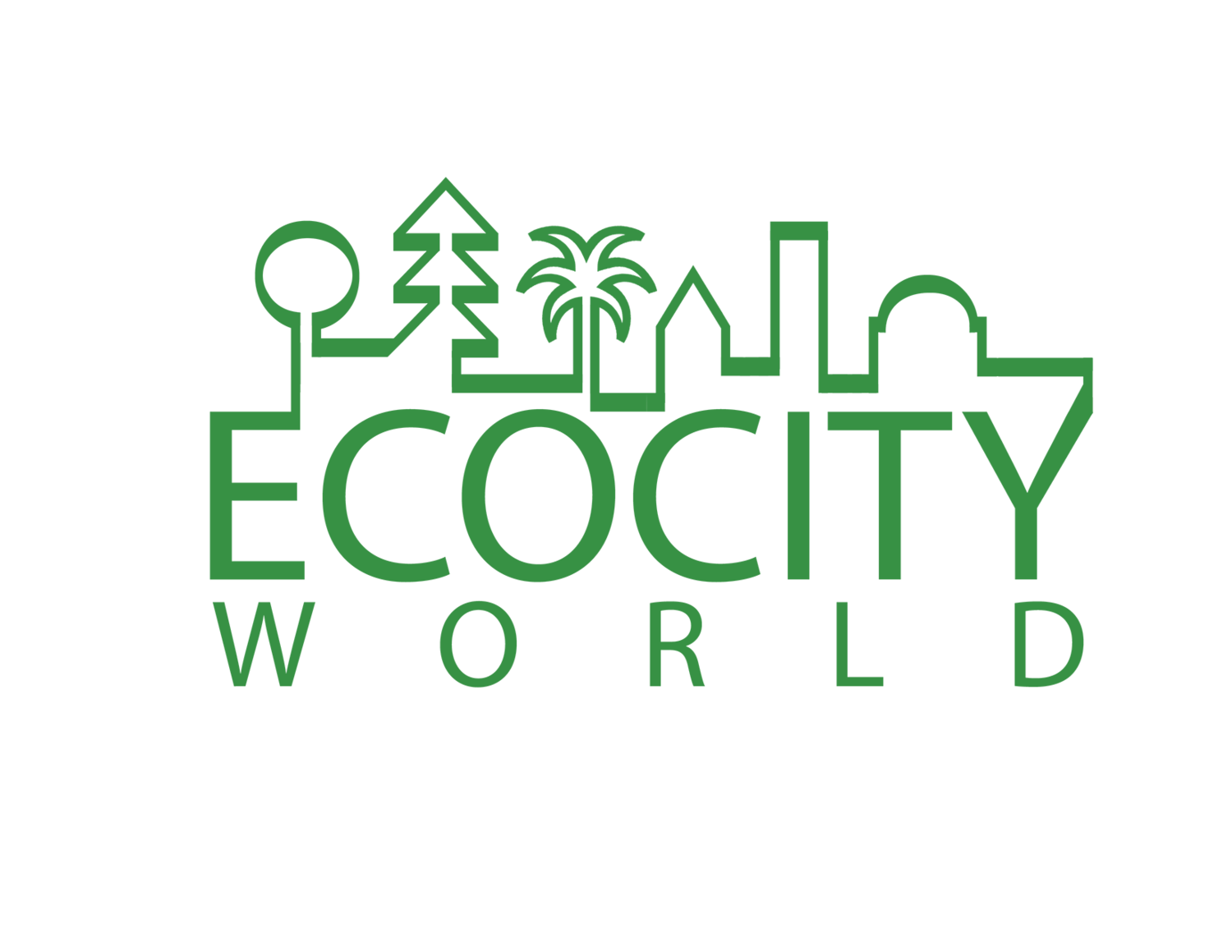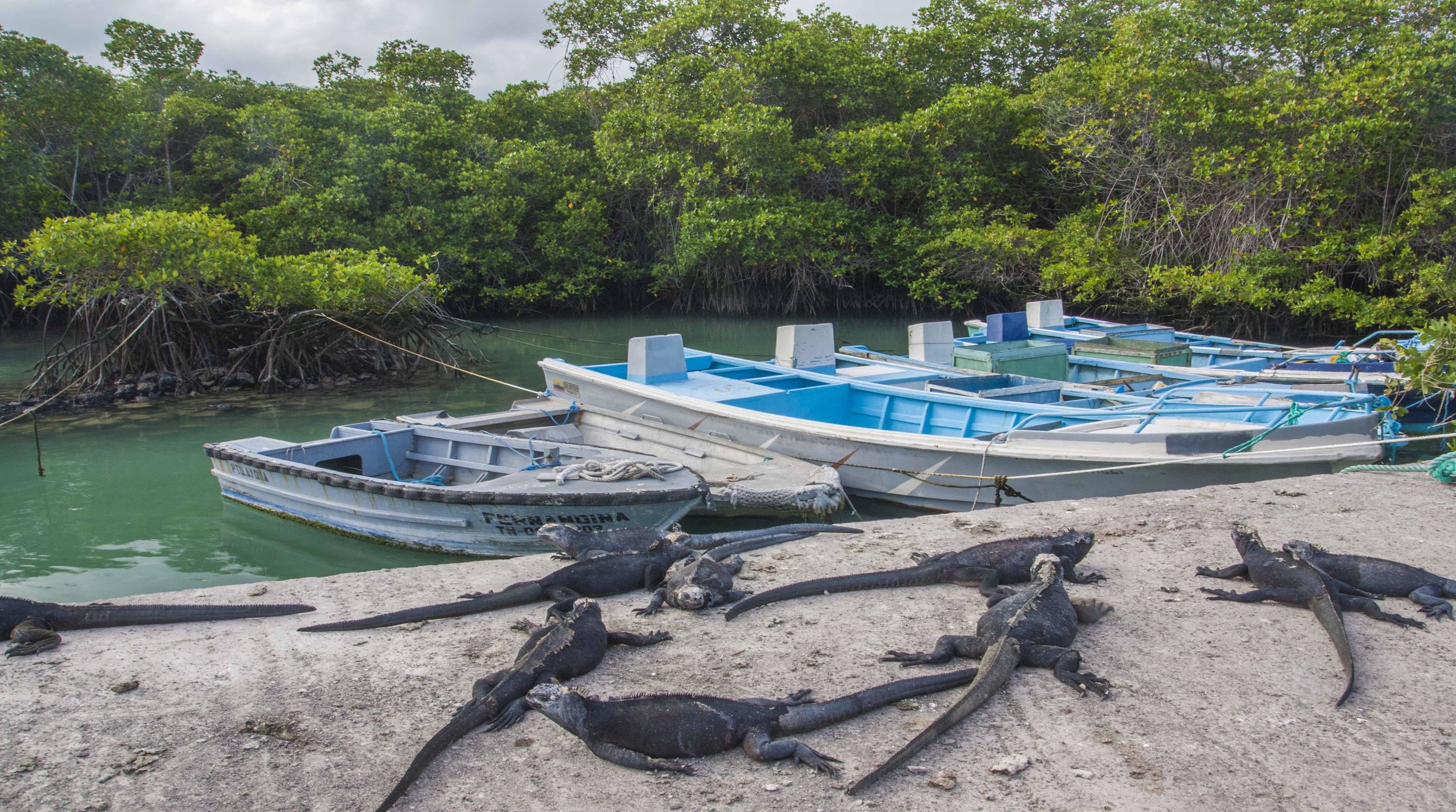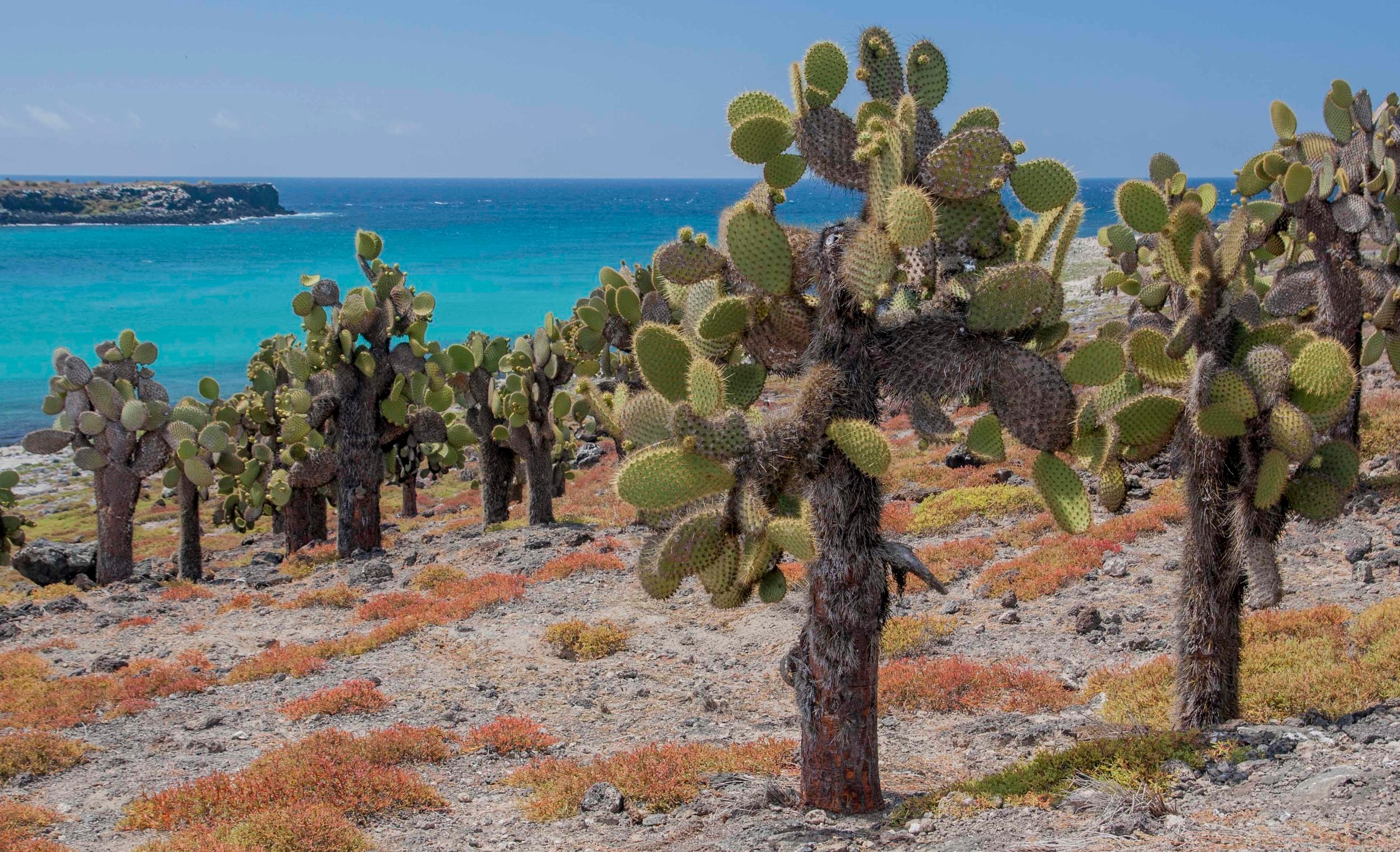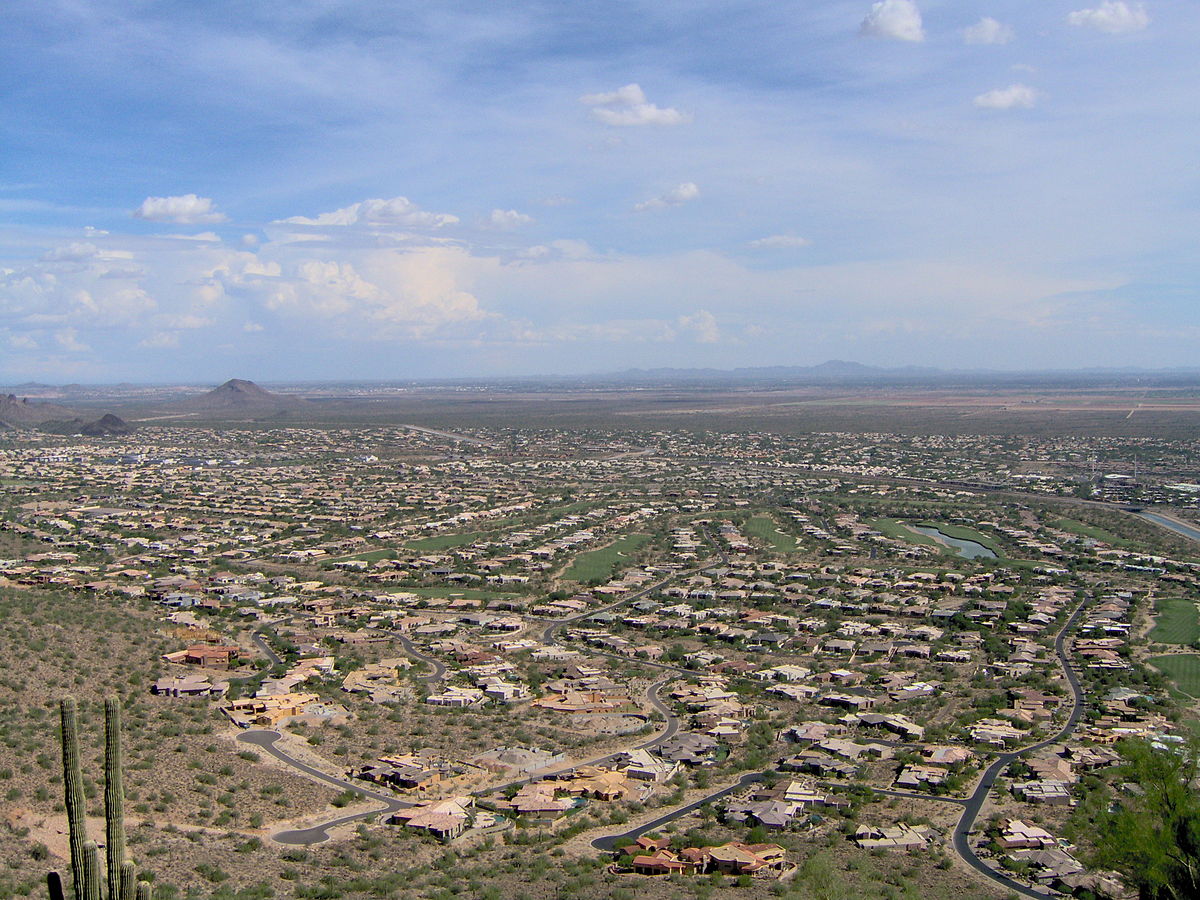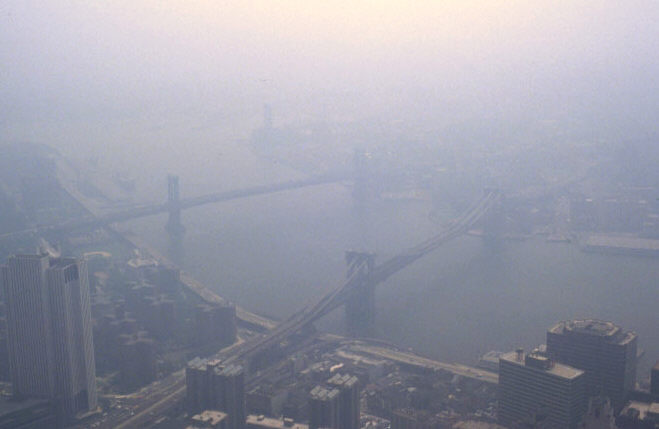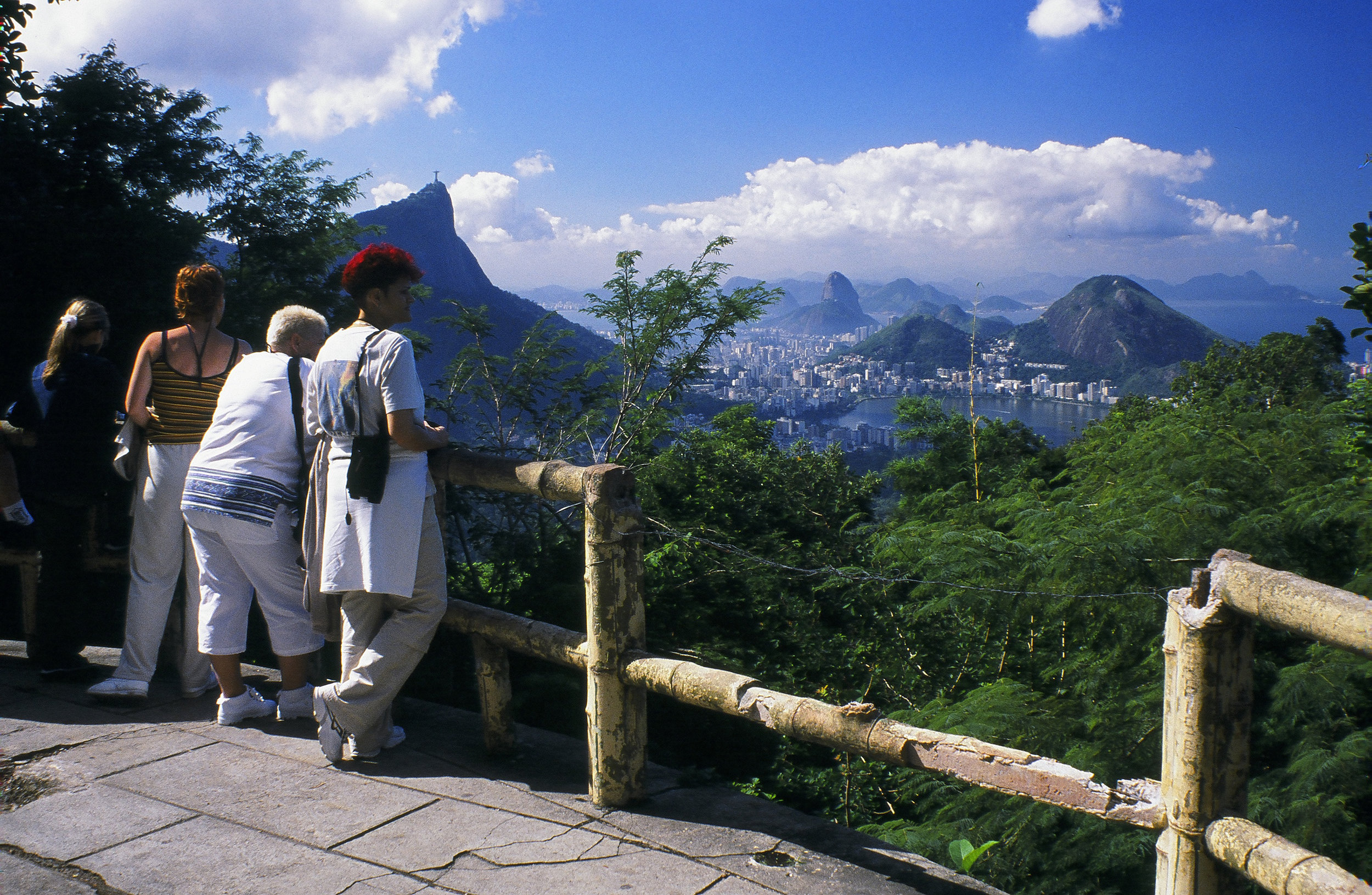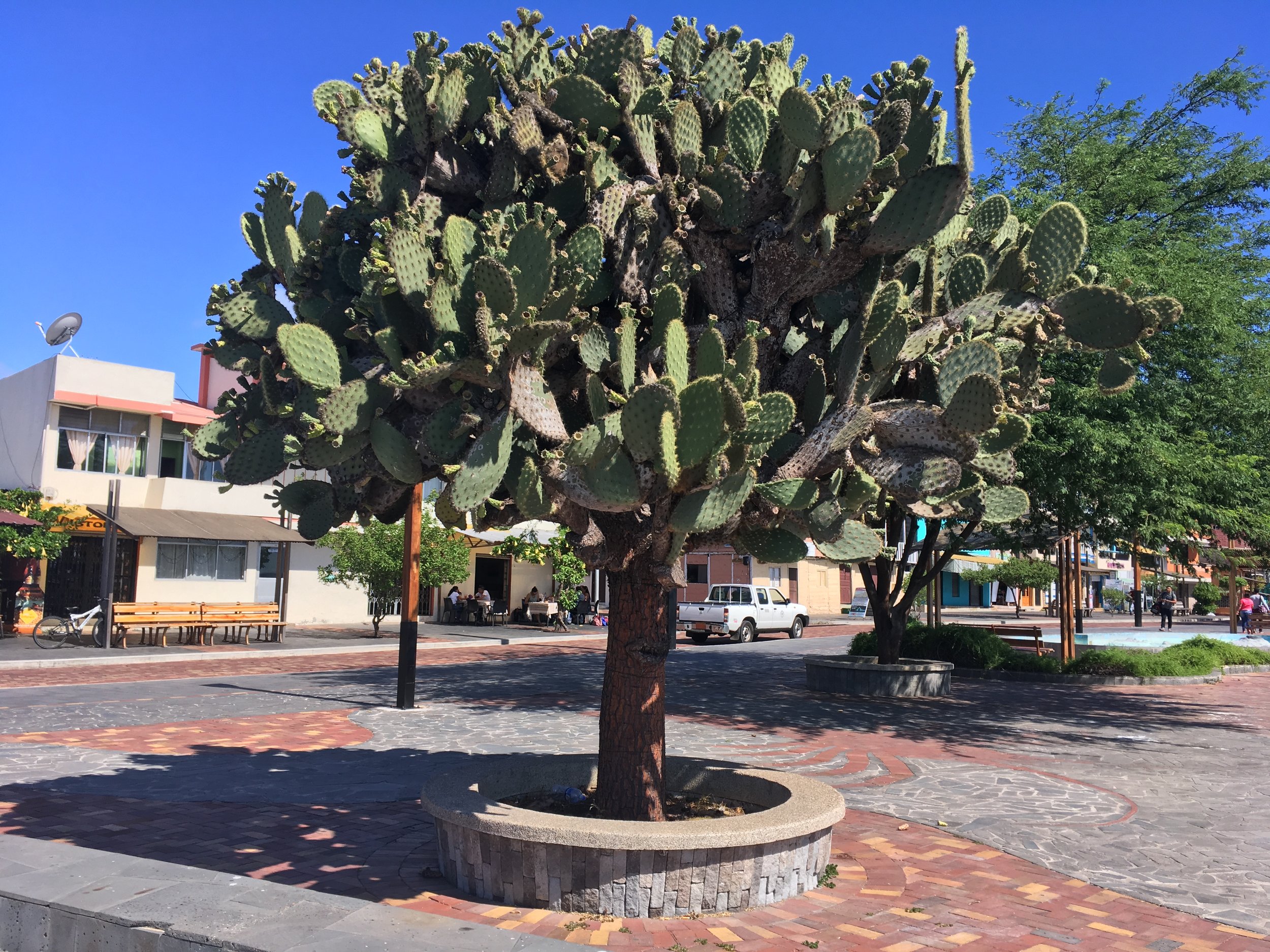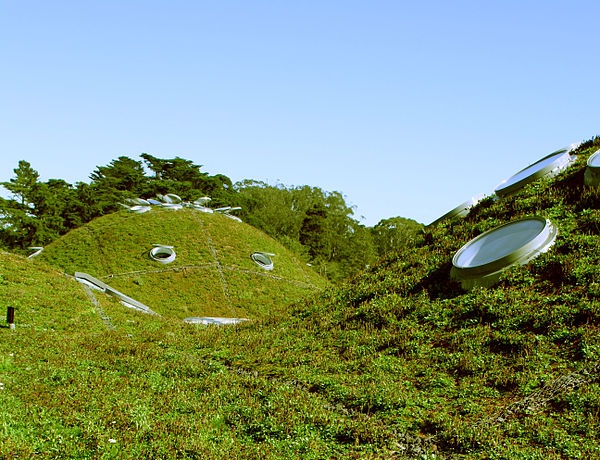Note: This project has been postponed indefinitely due to funding and scheduling issues. stay tuned for updates!
Galápagos to the World: Evolution & Ecocities in Earth Year 2020
a conference in anticipation of the 50th anniversary earth day
december 8-10, 2019, Galápagos islands, ecuador
vision
Marine iguanas, Puerto Ayora, Galápagos
Giant Opuntia cacti, South Plaza Island, Galápagos
We, together with all of life on earth, are part of evolution and enveloped by it – our bodies, our minds, and our creations. The news was delivered on the winds by the HMS Beagle when Charles Darwin described what he had discovered on the “Enchanted Isles,” also known as the Galápagos. As the birthplace of Darwin’s theory of evolution and home to species unique in this world and uniquely threatened, the Galápagos Islands provide the ideal context to explore topics integrating biological evolution with the evolution of human culture and of the environments we build: our cities, towns and villages.
We are an urban world now, the impacts of our largest creations – the cities, towns and villages now home to 90% of us – embracing the entire planet. Can we re-think our present and future physical communities so that they become healthy and creativity-facilitating enterprises for humans and non-humans alike? We urgently need a better understanding of the convergence of evolutionary processes in natural and constructed environments, shaping the lives of all their inhabitants.
Cities, like natural ecosystems, are environments that exert selective pressures on biological species. The Galápagos Islands have a special potential to elevate awareness of the negative impacts of the contemporary city on the evolution of non-human species – and ourselves – through habitat destruction, climate change and other drivers of extinction. But also, these constructed habitats have the potential for supporting healthy evolutionary processes through sustainable design that encourages the greatest possible species diversity. The discussion of these impacts also serves as a springboard for addressing the ways that urban environments also shape, and have been shaped by, the evolution of human culture – in both productive and destructive ways.
At the same time, cities can, by analogy, be viewed as organisms themselves, evolving over time in response to both their surrounding natural environments and to internal forces. Until recently, this evolution has progressed – in the general manner of biological evolution – in the direction of increasing organization and complexity resulting in compact and three-dimensional forms, efficient use of resources, and responsiveness to local environmental conditions. On the other hand the largely sprawling, two-dimensional form of the modern city, driven by dominance of automobiles and their demands, has no analogy in the biological world. It has become maladaptive, with repercussions for cities’ own health as well as that of their surrounding environments from the local to the global scale.
The Tree of Life, from Darwin (left) to a more recent depiction
Traditional compact urbanism, Siena, Italy
Typical urban sprawl
Freeway Park, Seattle, Washington
Alternative modes of transport
Catching the breeze - a hypothetical hot-climate ecocity (drawing by Richard Register)
A fair number of architects, landscape architects, planners, developers, investors, and citizens living more sustainable lifestyles in urban areas have taken many useful steps toward the creation of healthier cities. They have been planning and supporting pedestrian-oriented downtowns, public transit, bicycle travel, recycling, and a shift away from fossil fuels to renewable energy sources. Yet, there has been little attention paid to lessons that evolution may hold for the development of the cities, towns and villages of today and tomorrow - development that holistically improves the health of all living organisms and ecosystems. Similarly, evolutionary biologists have taken relatively limited interest in how the development of human culture and built environments factor into the overall evolutionary health of the planet, present and future.
In building the cities of the future, there is no better way to understand and act upon the lessons of evolution than to ride on the coattails of Charles Darwin and others who have verified and expanded on his ideas in the place where so much of it began – the Galápagos Islands. This Evolution & Ecocities conference and associated projects and events, most notable the 50th Anniversary Earth Day in April 2020, will be crucial steps in turning our built environment – a wonderful invention turned destructive – away from its current trajectory and toward a healthy and sustainable future for our entire planet.
Objectives
• To hold a three-day conference for approximately 100 people with 30 key presenters/facilitators to explore ideas and share insights regarding the best of evolutionary and ecocity thinking, connections between the two, and implications for the present and future health of the Islands and the planet.
• To conduct a design workshop, or “charette,” led by experienced designers and planners and involving conference participants and local residents. The workshop will develop concepts and related policy proposals for a model ecovillage project in the Galápagos. Outcomes gaining the support of the community and of key decision-makers will be further developed post-conference into the basis for a built project. It will also provide a template for ecologically-informed development elsewhere in the islands that will in turn inspire the creation of sustainable urban environments around the world.
• To produce a readable and inspiring illustrated book encapsulating conference ideas and conclusions, including the charette process and outcomes, accessible to the general public in printed and digital form. It will serve as a basis for future outreach and policy development.
TIME AND PLACE
Puerto Ayora, Santa Cruz island, Galápagos (Imagery @2019 CNES / Airbus, Map data @2019 Google)
December 8-10, 2019 in appropriate facilities in Puerto Ayora, Santa Cruz Island or Puerto Baquerizo Moreno, San Cristóbal Island as to be determined in the near future.
The event is timed as part of the run-up to the 50th anniversary Earth Day on April 22, 2020 - expected to be the largest event in human history with a likely participation of two billion people. The magnifying power of very large events cannot be overemphasized, and our opportunity to infuse Earth Day 2020 with vital new ideas and links through our Evolution & Ecocities conference presents both a challenge and monumental opportunity.
keynote speaker
Denis Hayes, organizer of the first Earth Day in 1970 and now President and CEO of the Bullitt Foundation in Seattle, Washington, will lead off the conference. Hayes has a long history with Richard Register, founder of Ecocity World, going back to 1969. Denis delivered the Keynote Address at the First International Ecocity Conference in 1990, the first in a series of now more than a dozen such conferences launched by Richard in 1990. That event was held three weeks before Earth Day of that year, helping to set themes for what was at the time the largest gathering in human history, involving over 200 million people worldwide. Denis will be back with us again for Evolution & Ecocities, leading into this deeply historic Earth Day 2020.
themes
Themes presented and discussed during this conference are positioned around the confluence of evolutionary theory and ecocity theory and practice. More broadly, they will address a wide-ranging yet interrelated set of issues that have rarely been addressed in tandem – including the most consequential that humanity and the planet have ever faced, particularly climate change, species extinctions and other human-caused “natural” disasters. These problems are of our own making, but we possess tremendous creative potential to solve them.
GENERAL THEORETICAL FRAMEWORK
Ecocity potential: What is at stake in sensitive and singular locales like the Galápagos, and how is ecocity thinking essential to their survival?
Biological evolution: lessons for ecocity design from evolutionary theory developed in the Galápagos and elsewhere.
Cultural evolution: sustainable design implications of recent advances in understanding cultural change.
Urban Evolution: what can evolutionary principles teach us about how our cities have developed, and how we can better plan the cities of the future?
The urban-nature interface: how can we live together? Lessons from the past and present.
CHALLENGES & OPPORTUNITIES
Urban and rural development in the Galápagos: history and trends.
Cities, buildings and landscapes more generally: the latest sustainable design theory and practice.
Environmental challenges in the Galápagos and other sensitive locales: the imperative for ecocity design.
Cultural and environmental impacts of the modern city, and why they compel ecocity thinking.
Climate change and the built environment: current links, and how ecocity design can break them.
Confluence of biological, cultural and urban evolution: implications for ecocity design and planetary health.
URGENT MEASURES & METHODS
Time, talent and tech: designing healthy cities, towns and villages well and fast.
The role of new and old technologies in re-thinking the structure and function of cities.
Drawdown: sequestering atmospheric carbon in vegetation, soils and sediments.
Education and persuasion: environmental/evolution education, dissemination of ecocity ideas, and bringing about change in political, cultural, and economic norms.
Evolutionists: Charles Darwin with flowers, and Lynn Margulis with endosymbiosis (Photo @ right: By Jpedreira - Self-published work by Jpedreira, CC BY-SA 2.5,https://commons.wikimedia.org/w/index.php?curid=407368)
From flat cities to compact cities: saving land, energy and time (drawing by Richard Register)
Bicycle lane, Puerto Ayora
Small compact village in Nepal, with Mt. Dhaulagiri
Invasive trees in the once-treeless highlands of Santa Cruz Island
Fossil fuel dependence
PLANNING COMMITTEE
Richard Register, Evolution & Ecocities conference Convener; ecocity author and theoretician; founder of Ecocity World and the on-going International Ecocity Conference series held in twelve cities around the globe. Richard has spoken on ecocities in 36 countries and 29 US states; some of his terminology and development policies have been adopted by the Chinese government.
Darren Sears, conference Co-convener, Stanford- and Harvard-educated landscape architect and artist, interested in emotional responses to landscape, vegetation and biodiversity and in their manifestations in art and built form. His artworks depict dramatic juxtapositions of ecosystems, urban and wild.
Paul Downton, Co-convener of the Second International Ecocity Conference in Adelaide, Australia; practicing architect in Melbourne; Co-founder of Urban Ecology Australia; professor and author and illustrator of books in the ecocity realm; a self-described “urban evolutionist.”
Mark Rauzon, Professor of Geography at Laney College in Oakland, California; expert wildlife restorationist focusing on the remote central Pacific Ocean islands; author and illustrator of books on restoring and protecting native biota on degraded islands.
SPEAKERS
Joe Alcamo, Professor at Kassel, Germany’s Center for Environmental Systems Research; served as first Chief Scientist of the United Nations Environment Program for five years out of Nairobi, Kenya.
Rosalia Arteaga Serrano, Past Vice President and President of Ecuador; President of the FIDAL Foundation focusing largely on youth education and environmental health.
Timothy Beatley, Teresa Heinz Professor of Sustainable Communities in the Department of Urban and Environmental Planning, University of Virginia; leading author and researcher on sustainable cities.
Jaime Chavez, professor of ecology, evolution and genetics at the Universidad San Francisco de Quito, working part of each year on the Galápagos campus on San Cristóbal and with the Galápagos collection at the California Academy of Sciences.
Latha Chhetri, past Chief Urban Planner, Ministry of Works and Human Settlement, Bhutan (birthplace of the Gross National Happiness Index).
Sofia Darquea, President of the Association of Galápagos National Park Guides and Interpreters.
Paul Downton, see “Planning Committee.”
William Durham, biological anthropologist and Bing Professor (Emeritus) in Human Biology at Stanford University; evolutionist, human ecologist, expert on the Galápagos, and leader of academic and scientific tours to the Islands.
Fan Bin, President of A and P Architects, Beijing and Tianjin, China; active in the promotion of ecocity work throughout the country; hosted ten visits by Richard to Chinese universities and conferences.
Richard T.T. Forman, Professor, Harvard Graduate School of Design; father of landscape ecology and road ecology, focusing on the formal and functional interweaving of people and nature on the land.
Paul Hawken, author of many books, largely on society’s larger problems and their promising solutions, notably his recent Drawdown on the means and enormous benefits of drawing carbon out of the atmosphere and sequestering it into soils and sediments.
Denis Hayes, organizer of the first Earth Day (1970) and of a season of events leading up to and including the 50th anniversary Earth Day on April 22, 2020; President of the Bullitt Foundation in Seattle, Washington; past Director of the US National Renewable Energy Research Laboratory.
Hazel Henderson, economist, futurist and among the earliest promoters of solar energy technologies in several popular books with broad societal, communications and environmental outlook; author of the Foreword to Richard Register’s Ecocities.
David Lansdale, Professor Emeritus at the Universidad San Francisco de Quito in business and communications, San Cristóbal campus, promoting ecotourism as entrepreneurship and stewardship through his EcoHelix initiative.
Amy Lewis, Vice President, the WILD Foundation; an award-winning scholar of environmental policy specializing in democratic decision-making, currently focusing largely on an international ethic of care for wildlife and wild places.
Jaime López, Universidad San Francisco de Quito, working on the Galápagos Islands USFQ campus two or more months a year for many years, professor in architecture and planning who has led many workshops for ideas appropriate to development on the Galápagos.
Vance Martin, President, the WILD Foundation, a leader in business and non-profit management. He has worked in over 45 countries establishing and assisting non-profits, chiefly in nature conservation and wilderness protection. He is also Co-chair of the Wilderness Specialist Group, International Union for Conservation of Nature (IUCN).
Jennie Moore, Director, Institute Sustainability in the British Columbia Institute of Technology; Convener of the 13th International Ecocity Conference in Vancouver from October 7-11, 2019.
Mark Rauzon, see “Planning Committee.”
William Rees, author; co-creator of the “ecological footprint” concept and terminology, key to environmental thinking since publication of Our Ecological Footprint in 1996; professor of ecology at the University of British Columbia, Vancouver.
Richard Register, see “Planning Committee.”
Darren Sears, see “Planning Committee.”
Pedro Zapata, Mayor of the Municipal Government of Puerto Baquerizo Moreno, San Cristóbal Island, Galápagos; he has offered use of facilities and assistance in logistical arrangements on site.
An urban rainforest, Tijuca National Park, Rio de Janeiro, Brazil
Freeway Park, Seattle, Washington
Safe “slow” street, Puerto Ayora
Creekside restaurant, San Luis Obispo, California
Densification (drawing by Richard Register)
Giant Opuntia cacti along the Puerto Baquerizo Moreno waterfront, San Cristóbal Island, Galápagos
Green roof, California Academy of Sciences, San Francisco, California
Hotel Mainao, designed by owner Ignacio Sangolqui, in Puerto Ayora
Layering, ecological and urban (drawing by Richard Register)
King’s Park, Perth, Australia (bridge and photo credit by Geoff Waren)
next planning steps
Sea lions, Puerto Baquerizo Moreno waterfront
Skating down the reduced-speed Avenue Charles Darwin, Puerto Ayora
Tortuga Bay, near Puerto Ayora
Shade structures (highlighted), Puerto Ayora.
Assemble financial supporters and co-sponsors including businesses, foundations, government agencies, and individuals.
Refine program and scheduling of sub-events with input from conference participants.
Secure one or several hosting institutions, and/or a professional to act as “fixer,” with a local presence to assist Ecocity World in or take charge of locations, lodging and logistics, ensuring internet connectivity, arranging local transportation and tours, gathering information for conferees on local sites and facilities, securing media connections and permits where required.
With local support, select a project site for the design charette, collect base data, and possibly begin development of initial concepts for a particular site for a built project with input from confirmed conference participants.
Secure an editor and publisher for the conference publication in popular book form.
Select tour operators to organize post-conference tours.
Conduct a third, approximately month-long trip this spring to the Galápagos (Richard Register and possibly other event organizers) to consolidate contacts and bring in additional presenters representing local powers, issues and opinions; to work with the host institution on logistics; and to explore means to best link with local to national planning authorities for best positive impact on the Islands.
OUTCOMES & FOLLOW-UP INITIATIVES
• “Spin-off” conferences in other locations, potentially producing ecocity projects in the model of the Galápagos design charette.
• Engage lower and higher educational institutions in the Galápagos to grow curriculum and teaching staff focusing on sustainable development through an evolutionary lens, advancing ecotown design and development on the Islands.Presentation of conference highlights at Earth Day 2020 events.
• Further progress in development of ecocity ideas from the design charette, resulting in zoning changes and a physical project on a chosen site in the islands. Parties involved would continue or expand and likely include community members, developers, architects, tour operators, hotel owners, ecologists, and evolution scientists.
• “Spin-off” conferences in other locations, potentially producing ecocity projects in the model of the Galápagos design charette.
• Engage lower and higher educational institutions in the Galápagos to grow curriculum and teaching staff focusing on sustainable development through an evolutionary lens, advancing ecotown design and development on the Islands.
